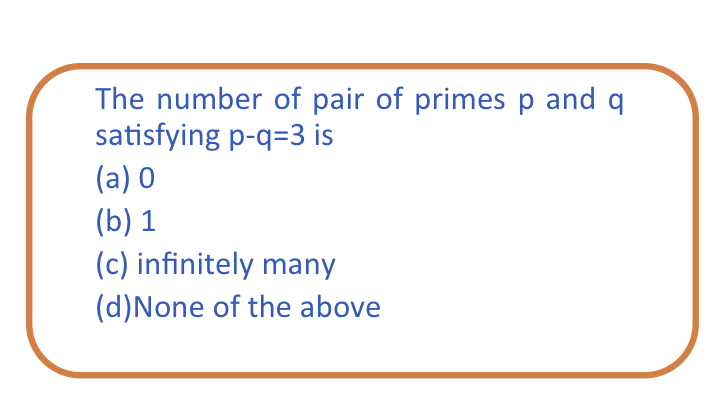Prime Number Problem 24
-

Abhishek Kumar
Mar 10th, 2019

-

Pritam Paul Mar 10th, 2019
(B) False. Its not always true. As an example if we put 23, we get product of 3 prime numbers.
Prime Number Problem 16
-

Abhishek Kumar
Mar 24th, 2019

-

Priyangshu Pramanick Mar 10th, 2019
1 only........cause a prime number is always a odd.....so if we add q 3 thats even....but p is odd
Model Answer:
p=5 and q=2 is one obvious solution.
Now suppose both p, q>3.
p and q can only be of the forms 6k+1 or 6k+5.
Since p-q=3, both must be of the same forms.
But then difference will be divisible by 6.
Therefore, p-q cannot be equal to 3.
Thus, p=5, q=2 is the only possible solution.








Abhishek Kumar
Apr 11th, 2019